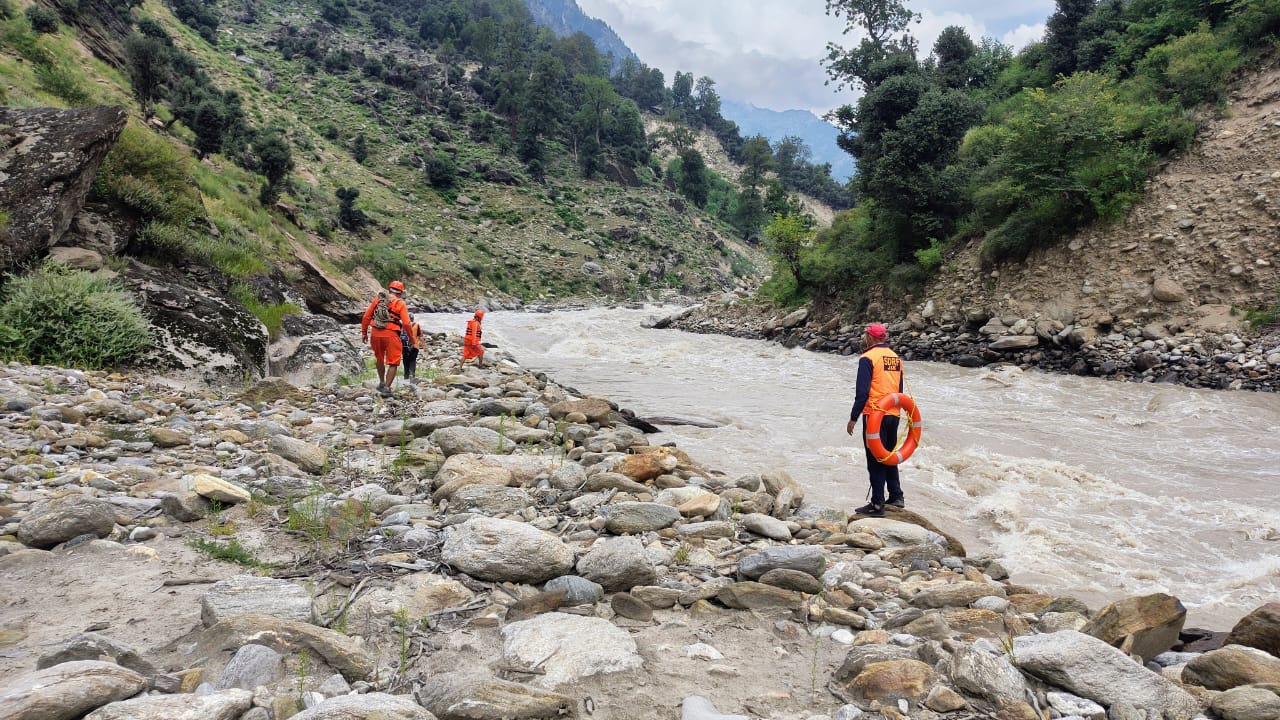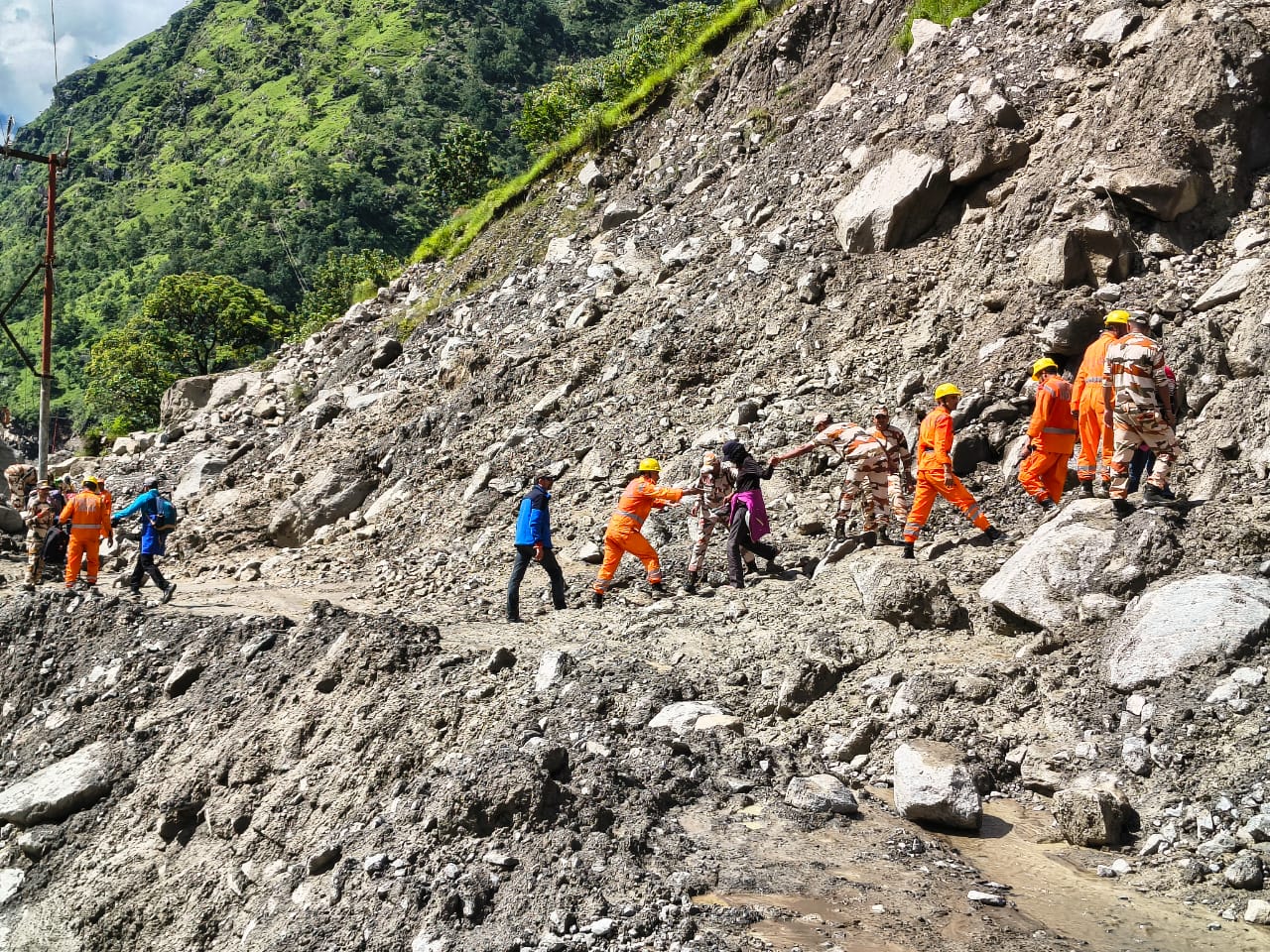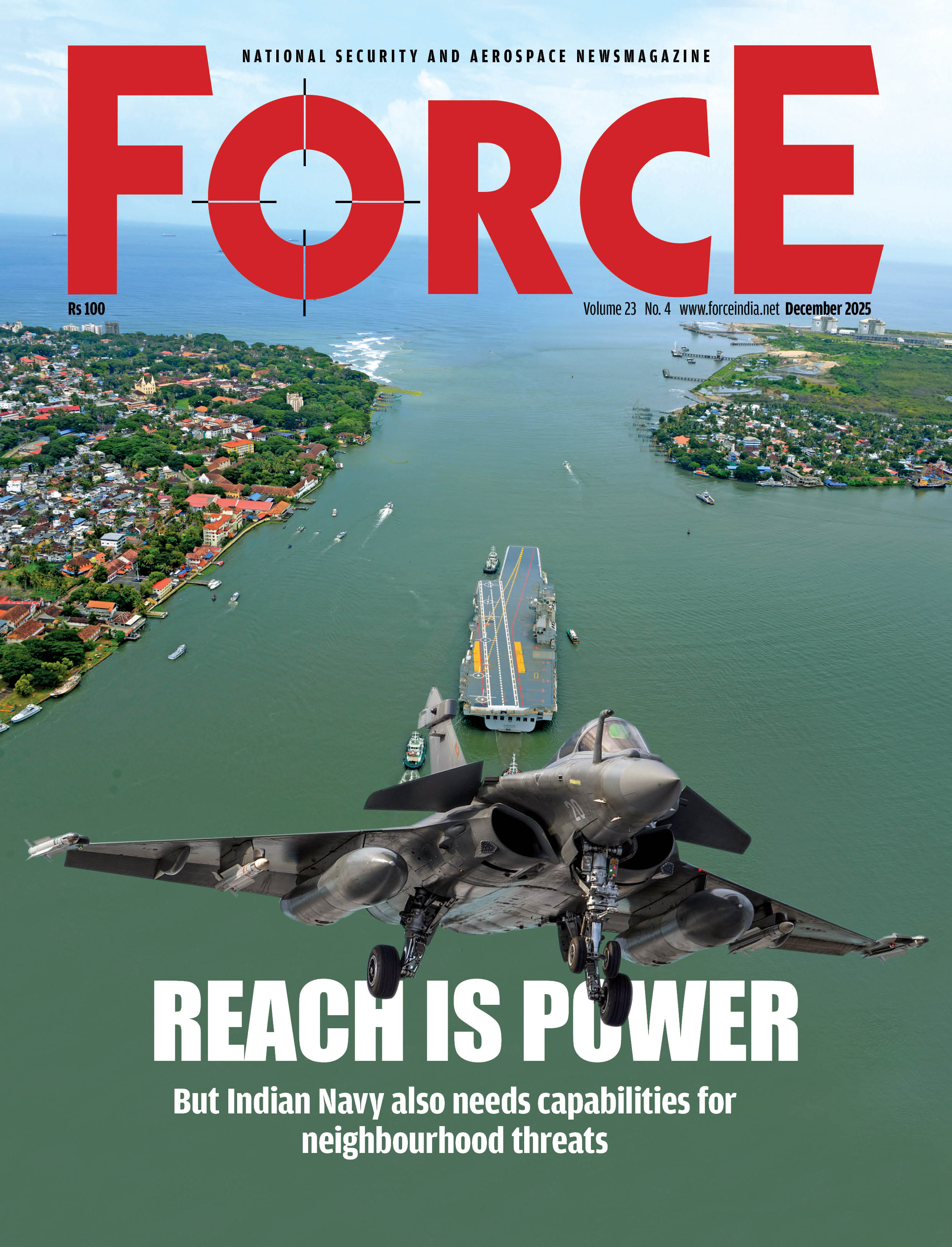Life Saviours
Subhashis Mittra
As a sudden cloudburst triggered a massive
flash flood in the Kheer Ganga river causing major destruction in Dharali town of
Uttarakhand, a team of 69 National Disaster Response Force (NDRF) rescuers, two
cadaver dogs and veterinarians joined the rescue operations launched by the
Indian Army, Indo-Tibetan Border Police (ITBP), and State Disaster Response
Force (SDRF) among others.
Apart from the cadaver dogs, who will
help find the dead, the NDRF has four sniffer dogs who can detect survivors. First
time in the 19-year-old history of the force that cadaver dogs have been
deployed. Ecologically fragile Dharali is the main stopover on the way to
Gangotri, from where the Ganga originates, and is home to several hotels and
homestays.
In times past, when the only means of reaching Gangotri was by foot, Dharali was one of the main stops on this road. There was a suspension bridge to cross the Bhagirathi and pilgrims used to buy food from the shops here. The original village is located half a kilometre above the present market at an altitude of 2,593 m. After a motorable road was built at the foot of the main village in the Sixties, settlements gradually started to develop on its banks as well. The floodwaters, carrying heavy silt, swept through the area, washing away the homes and submerging structures.

According to DG NDRF Piyush Anand, every disaster is a learning experience for the force which has grown from eight to 16 battalions now, and its 16,000-18,000 personnel have a presence at around 70 locations in the country, using drones, artificial intelligence and other advanced technological tools in rescue operations. The NDRF was raised in 2006. Now each battalion of NDRF has 18 specialised Search and Rescue (SAR) teams which are self-contained and have specialists like engineers, technicians, electricians, dog squads and medical/para-medical personnel.

The DG NDRF said that there was no immediate plan to add more NDRF battalions to the force. “We have 16 battalions that are equipped with necessary equipment to operate in any situation. Besides, we get airpower assistance within a quick time from concerned authorities. Therefore, we could respond to emergencies quickly,” he added.
NDRF works in three institutional management systems. It has conducted more than 12,000 operations, rescued 1,60,000 people, and evacuated 8.5 lakh others during various disasters. NDRF has been mandated to attend all natural and man-made disasters in the country except fires. This includes Collapsed St
Subscribe To Force
Fuel Fearless Journalism with Your Yearly Subscription
SUBSCRIBE NOW
We don’t tell you how to do your job…
But we put the environment in which you do your job in perspective, so that when you step out you do so with the complete picture.







